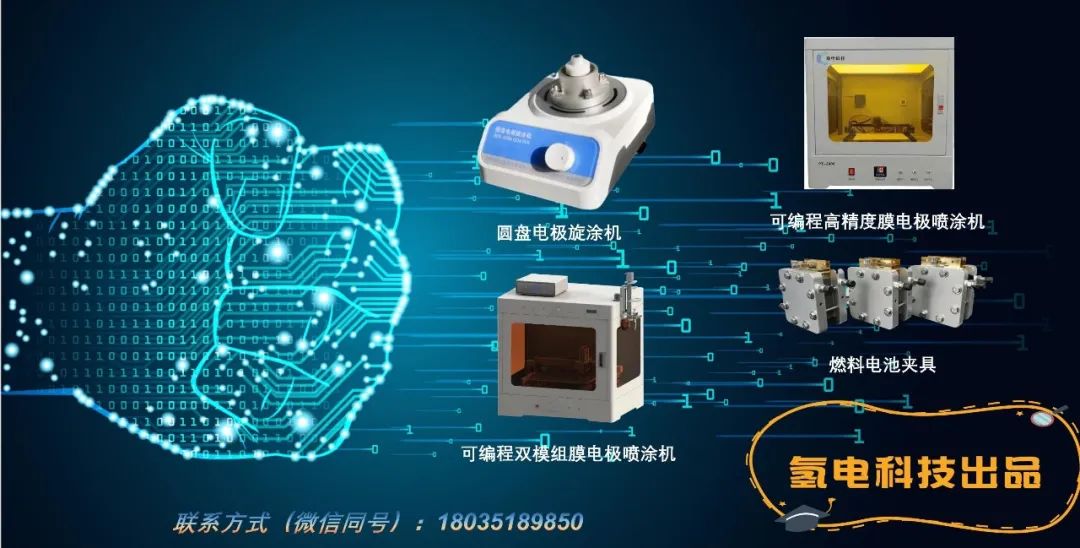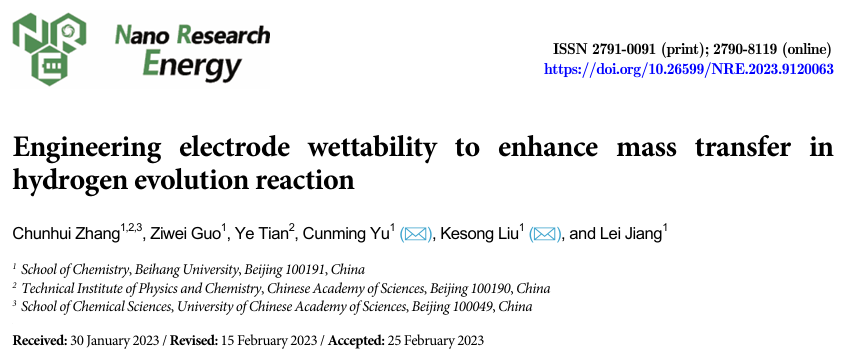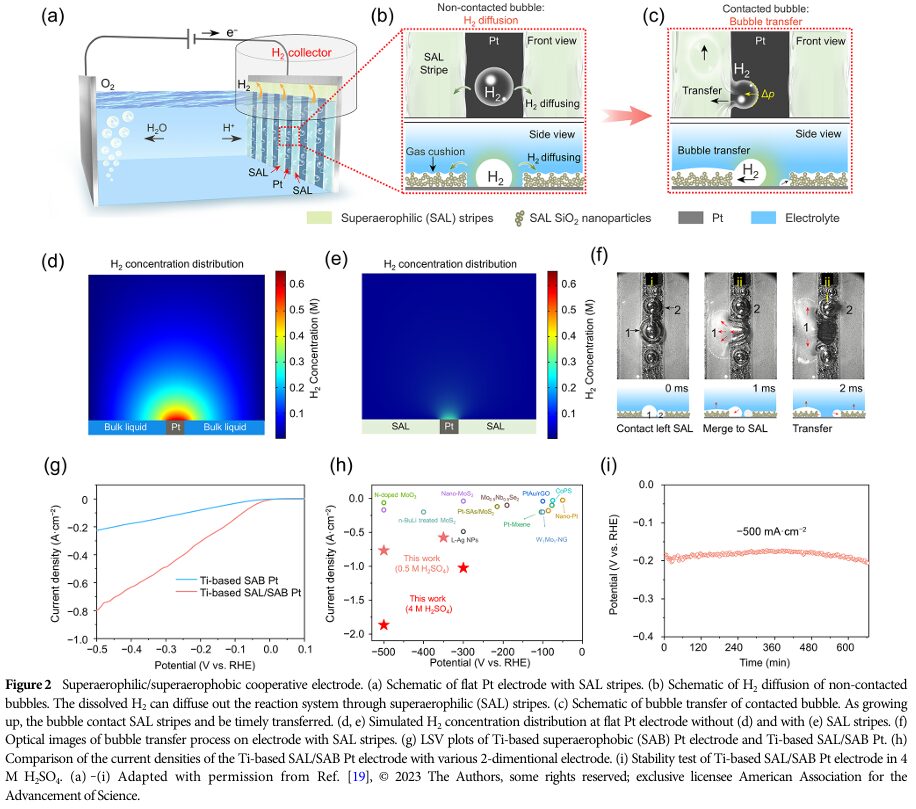 In the hydrogen evolution reaction, the low mass transfer efficiency caused by bubble attachment to the electrode, bubble dispersion in the electrolyte, and slow diffusion of hydrogen greatly hinders the reaction process.Existing technologies can only address the issues of bubble attachment or bubble dispersion.However, strategies that can simultaneously solve the three problems of bubble attachment, bubble dispersion, and poor hydrogen diffusion are rarely reported. Recently, an article reported a novel electrode with a special wettability design that effectively promotes bubble transport and the diffusion of dissolved hydrogen.
In the hydrogen evolution reaction, the low mass transfer efficiency caused by bubble attachment to the electrode, bubble dispersion in the electrolyte, and slow diffusion of hydrogen greatly hinders the reaction process.Existing technologies can only address the issues of bubble attachment or bubble dispersion.However, strategies that can simultaneously solve the three problems of bubble attachment, bubble dispersion, and poor hydrogen diffusion are rarely reported. Recently, an article reported a novel electrode with a special wettability design that effectively promotes bubble transport and the diffusion of dissolved hydrogen.
01 Research Background and Objectives
Importance of Hydrogen Evolution Reaction
The hydrogen evolution reaction (HER) is a key step in the water electrolysis process and is significant for the storage and conversion of renewable energy.
An efficient hydrogen evolution reaction can reduce energy consumption and improve energy utilization efficiency.
Impact of Electrode Wettability
The wettability of the electrode surface directly affects the mass transfer process of reactants and products, thereby influencing the rate and efficiency of the hydrogen evolution reaction.
By regulating the wettability of the electrode, it is expected to optimize the mass transfer process and improve hydrogen evolution reaction performance.
Research Objectives
The aim is to explore the impact of regulating electrode wettability on the mass transfer process of the hydrogen evolution reaction and to seek optimal wettability conditions to enhance hydrogen evolution efficiency.

02 Research Methods
Electrode Preparation and Modification
Electrodes were prepared using different materials and methods, and their wettability was regulated through chemical or physical methods.
Electrochemical Testing
The hydrogen evolution reaction was tested using an electrochemical workstation, recording key parameters such as current density and overpotential.
Mass Transfer Process Analysis
Through theoretical calculations and experimental validation, the changes in the mass transfer process under different wettability conditions were analyzed.
03 Research Results
Impact of Wettability on Hydrogen Evolution Reaction
The study found that appropriate electrode wettability can significantly increase the current density of the hydrogen evolution reaction and reduce overpotential.
Excessively strong or weak wettability is detrimental to the optimization of the mass transfer process, resulting in a decline in hydrogen evolution reaction performance.
Optimal Wettability Conditions
Through experimental optimization, the optimal electrode wettability conditions were determined, under which the performance of the hydrogen evolution reaction reached its peak.
04 Research Limitations
Limitations of Experimental Conditions
This study was conducted under laboratory conditions, which may differ from actual industrial application environments.
Further verification is needed to assess the wettability regulation effects in more complex environments.
Limitations in Understanding the Mass Transfer Process
There are still certain limitations in understanding the mass transfer process, requiring more in-depth theoretical and experimental research.

05 Visual Guide


06 Future Research Directions
Optimization of Wettability Regulation Technology
Exploring more advanced wettability regulation technologies and methods to improve hydrogen evolution reaction performance.
In-depth Research on Mass Transfer Processes
Strengthening theoretical and experimental research on mass transfer processes to reveal more key factors affecting hydrogen evolution reaction performance.
Exploration of Industrial Applications
Applying research results in actual industrial environments to verify their feasibility and economic viability.
07 Summary
This article optimizes the mass transfer process in the hydrogen evolution reaction by regulating electrode wettability, achieving significant research results.
However, there are still some limitations that need to be overcome, and further in-depth research and exploration are required to promote the further development of hydrogen evolution reaction technology.